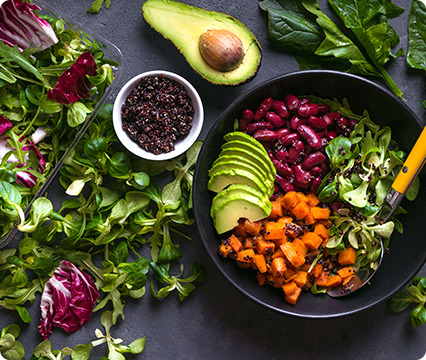Plant food consumption and emotional well-being: the Helsinki Health Study among 19–39-year-old employees
Although limited studies have compared different plant diets, prior research has shown links between eating fruits and vegetables and mental health. Mauramo et al. (2024) examined the relationship between the consumption of different plant foods and emotional well-being (EWB) among Finnish municipal employees. Data were taken from the 2017 Helsinki Health Study, which surveyed employees aged 19–39 from the City of Helsinki, Finland (N = 5898, response rate 51.5%, 80% women). The consumption of plant foods, including fruits, berries, fresh and cooked vegetables, and wholegrain bread, was measured using a food frequency questionnaire and categorized as either daily or non-daily. The RAND-36 questionnaire was used to measure EWB, with the lowest quartile denoting “poor EWB” and the top three quartiles denoting “good EWB.” Daily consumption was linked to better EWB in both men and women. Both men and women who regularly consumed plant foods had significantly higher odds of having good EWB than those who did not; the prevalence of daily consumption varied from 25% for berries and cooked vegetables to 70% for fresh vegetables. The highest age-adjusted associations were observed for fresh vegetables. These associations remained mostly significant after adjusting for socioeconomic and working conditions. The authors conclude that the increased frequency of plant food consumption was linked to better emotional well-being. These findings suggest that promoting plant food consumption could potentially improve mental health among employees. [NPID: Plant foods, emotional well-being, mental health, employees, socioeconomic]
Year: 2023
 Navigation
Navigation








